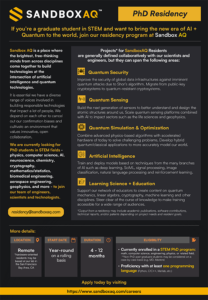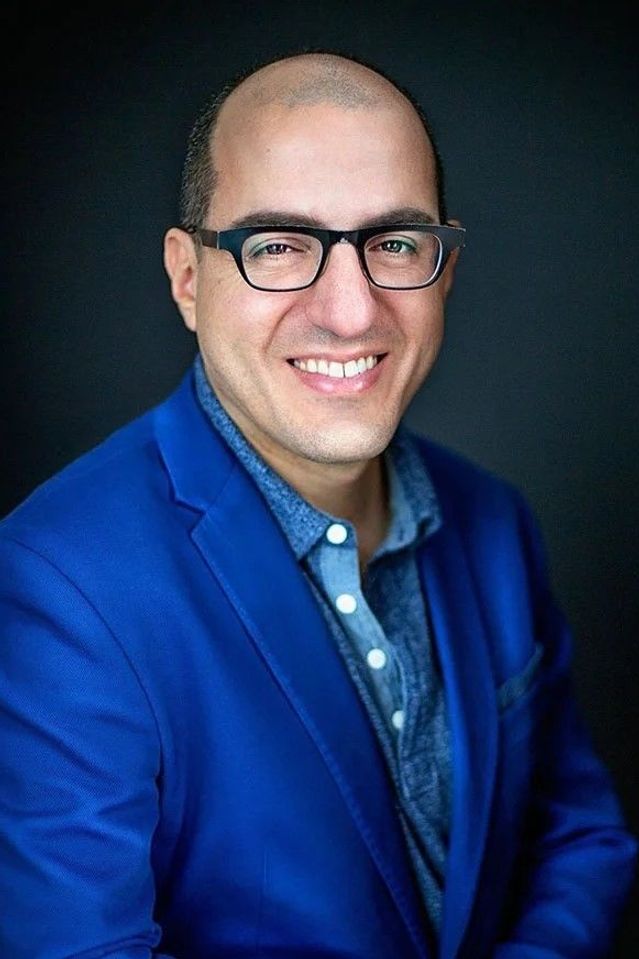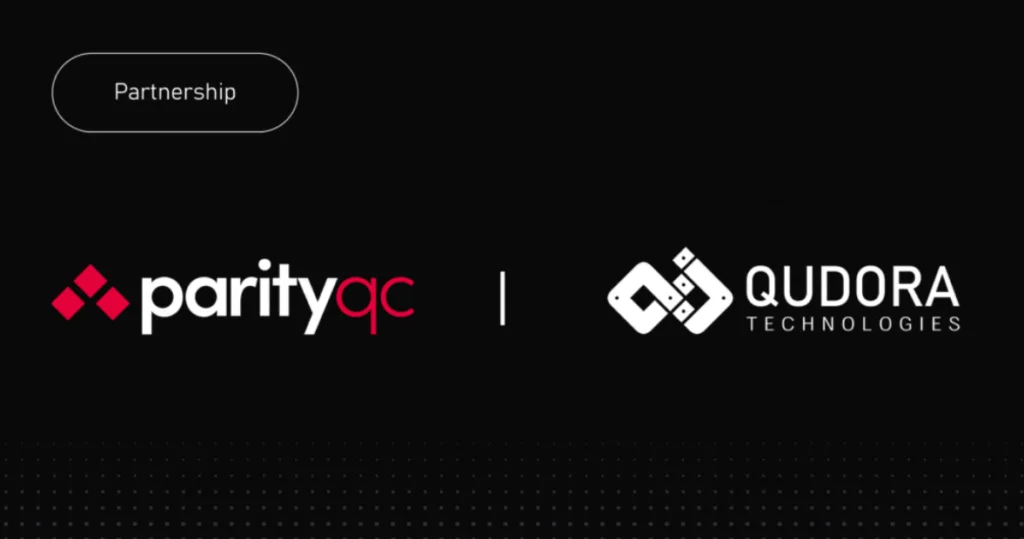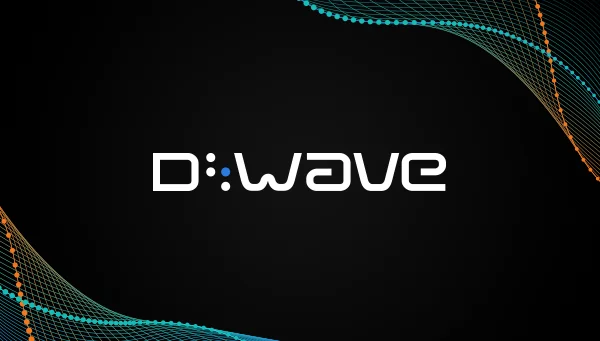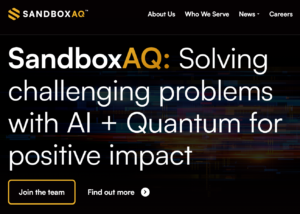
Google Spin-off SandboxAQ is Hiring
A conversation with Jack Hidary about Sandbox AQ, the quantum workforce and learning about quantum
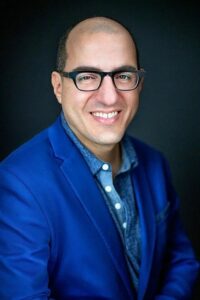

Jack Hidary, CEO of SandboxAQ
| Snapshot
https://www.sandboxaq.com/careers > The end of this article has a list of job titles, most are remote: Administrative, Business, Engineering Jack’s book on Applied Quantum Computing, newly released as a 2nd edition: https://www.amazon.com/Quantum-Computing-Approach-Jack-Hidary-ebook/dp/B09HJY9VT8 Profile: SandboxAQ is an AI+Quantum company, they recently exited Stealth mode and are actively hiring. From the website: SandboxAQ is an enterprise SaaS company combining AI + Quantum tech to solve hard problems impacting society. Our solutions include post-RSA cybersecurity modules that migrate enterprises to higher levels of security. These Sandbox AQ modules enable post-quantum cryptography (PQC) in line with the new standards that are now emerging in this field. |
Discussion
Todd: So, in terms of your quantum workforce, what are the main areas in which you’re hiring?
Jack: First, we’re hiring across a number of specialties. We’re hiring folks with a network engineering background in moving towards quantum communication, quantum secure communications. We’re hiring folks with cryptography backgrounds who have an interest in up-leveling into post quantum cryptography, or PQC. They don’t have to come with that background. We can train in that area for PQC. We’re hiring folks in the quantum sensing arena, which is a range of engineering disciplines there, and I should mention, we’re very interdisciplinary in our team. So we’ve got folks with physics backgrounds, applied physics backgrounds, and engineering. We have mathematics and cryptography, which go together very deeply, as you know, and then we’ve got machine learning. So there’s a broad range of disciplines in our team. The number one concern we have going forward is the talent gap.
Todd: That was my next question.
–
“The number one concern we have going forward is the talent gap.”
–
Jack: When people ask me, “what keeps me up at night?” – that’s what keeps me up at night – the lack of a talent pipeline in quantum and also lack of diversity in that pipeline. And so what are we doing about that? For the past four years, we’ve been hosting a residency program and our post-doc program. We’ve had a lot of success in training dozens and dozens of people in the field where they’re getting their degree at a university: Oxford, Cambridge, University of Chicago, Stanford and so forth. And during the period of their post doc, they spent three to six months with us. We pay a stipend, we give them a lot of in-depth training.
Todd: Fantastique!
Jack: And then we send them back. They finish the program free and clear and there’s no strings attached to our fellowship. But often they do decide to join us after their studies. And now, with more resources than we’ve had before, we can double down on these programs.
We’re talking to more universities now expanding the program. We’re in Canada, with programs in the Toronto and Montreal areas. We’re in France, Germany – the Planck Institute, very big for us in Germany. I mentioned Oxford, Cambridge, Imperial; soon we’ll be in three universities in Spain. We are being really proactive globally. Let me also mention Sydney. We have relationships with multiple universities in Australia where, again, we’re developing talent. So, we’re doubling down our efforts to both increase the pipeline and increase the diversity of the pipeline.
Todd: That’s great. So in regards to the talent gap, I was going to say the thing that I found was that there were 9,000 quantum jobs that came up in LinkedIn, but there’s only something like less than 2,000 physics PhDs each year. There are other disciplines of course but it just highlights the talent gap. How important do you think it is for quantum companies to help with that process?
Jack: I think it’s very important. I think that this is an ecosystem play. It’s a long-term marathon play. We’ve got to invest now so that five to seven years from now we start getting big returns. You have to be in for the long term. This is something that you can’t impact just in a year.
Todd: On a related note, you can only increase the pipeline a certain amount through higher ed, given the limits of how many people can graduate from traditional higher ed each year. Do you think there would be enough demand for a quantum college of some kind?
Jack: Not only do we need to work with universities [to increase the pipeline], we also need to work with the existing adult working population. While at Google, we trained numerous colleagues in various quantum and other advanced math courses, and we are training our customers now. We’ve trained engineers at Vodafone and other companies.
We need to upskill engineers and scientists and others that are already in the workforce. That’s the biggest opportunity. Actually, right now, if you wanted an extra 10,000 to 20,000 engineers that are quantum-ready right now, the key is the working population; that’s the fastest way to get them.
Todd: In the context of workforce development, for the C-suite or manager level, what level of quantum familiarity do you think is needed at that level, like quantum concepts just at a high level?
Jack: I don’t think the majority of managers are going to be coding necessarily, but I don’t think you can be a manager or leader today without knowing what the key concepts are about AI. You need to understand how AI drives your business, whether you’re a healthcare business or a logistics business, a farm or a bank, a telco or utility; machine learning is critical and analytics are critical to how you think about any of those businesses.
Similarly, over the next few years it will become increasingly important for leadership to understand quantum.
Todd: Have you found a way, in kind of layman’s terms, when you’re talking to business leaders, to characterize the distinct nature of quantum? I’ve been trying to find the best way to describe the distinct nature of quantum algorithm capability versus, say traditional, classical computing. For example, quantum may be particularly appropriate when you have large decisional, complex data like supply chain operations or drug discovery.
Jack: Absolutely. We have a one-hour course for the C-suite; they want to know what the impact will be on their business – and not only in productivity and speed. A lot of quantum articles focus on speed but it’s more than just speed. It’s also about if you’re doing drug discovery and you’re going to use quantum techniques.
By the way, a big ah-ha moment in our training of the C-suite is that those techniques can be run on classical computers. So you don’t have to wait for a quantum computer. That’s been a misunderstanding in this sector, that you have to twiddle your thumbs – “Ten years until we get four tolerant quantum computers.” They will be welcome devices. ”But is there a lot we can do now?” Answer: Yes.
If you’re doing drug discovery, you’re going to use quantum techniques: quantum-driven equations that drive the bonding and the various characteristics of molecular orbitals and electrons as they interact with other electrons. We can run these simulations on GPUs. The IT architecture of the future involves a hybridization of classical and quantum computing that’s all cloud based. What’s so exciting right now is that the majority of big enterprises around the world leverage cloud-based IT, and 99% of all access to quantum devices will be over the cloud. And that’s very exciting because enterprises can run their applications in the cloud right now, the majority of which run on classical, and they can draw upon the power of quantum in the cloud as needed.
Todd: Right.
Jack: For drug discovery, AI+quantum doesn’t only impact the speed of developing drugs, but it can also maybe widen the aperture and look at a broader range of targets in the system. So there’s a lot we can do right now with the advanced infrastructure that is now available in the cloud. And then, of course, we have hooks in the architecture so that as the quantum hardware becomes more impactful, we bring it more into the mix.
Todd: So in terms of workforce, people who are interested in quantum may be science-familiar, or maybe not. What would be your advice to them about either going back for education or certificates? Is there any guidance for focus areas, or should you just learn everything you can?
Jack: There’s a lot of great certificate programs. Open courseware has some good programs there. There are other programs popping up every day. We see programs popping up, certificate courses that take four weeks, eight weeks, six months. So I think there’s ample opportunity now. Certified training on a variety of platforms out there in the conceptual basis of quantum is good. But there is an over emphasis out there just on quantum computing. If you look at the 98% of the course material available online today, it is really just about qubits, circuits, operators, gates. What we’re doing at SandboxAQ is working in quantum sensing, quantum simulation, quantum communication; it is a missing piece right now in the landscape.
Todd: In terms of your book on applied quantum computing, I think it was there where I encountered some of your thoughts about classical versus quantum thinking. Have you found a way to characterize what you’re getting at?
Jack: It is critical, as people get more familiar with the quantum world, that we help people see beyond some of our classical preconceptions. Our human senses lead us to conclude that the world is deterministic, Newtonian, driven by years, etc.; but since the 1900s and the rise of quantum mechanics, we know that the world is probabilistic. The world is not always continuous; there are both continuous phenomena and there are discretized phenomena, like the idea that an electron can only exist in certain discrete energy levels that we call shells, out from the nucleus.
Because of classical thinking, this was difficult for the early quantum developers to accept probabilistic phenomena, and it’s even difficult today to think about the fact that our world is probabilistic. But it’s also amazing that some of these complexities can be described relatively simply by linear algebra.
Todd: Yeah!
Jack: We use bit operators, which we think about in quantum circuits, as we move the qubit around the Bloch sphere. These operators, of course, can be represented as matrices operating on the vector, representing the state of the qubit, and so this is what we have to have, lots of courses, both engineering oriented courses with laptops open and ideas, as well as conceptual courses for the C-suite.
(Todd’s note: if you haven’t seen, check out the informative animated series from 3Blue1Brown on YouTube, which includes linear algebra and discussion of quantum too.)
Todd: In terms of linear algebra, that is one surprising thing as you consider AI, machine learning and quantum. If you look at this suite of math needed for something like deep learning: probability, statistics, multivariate calculus. . . and then you look at linear algebra, it’s less complex and perhaps more approachable than some other math areas. But it’s central to quantum. And perhaps it’s an AQ (ai+quantum) starting point on the math side.
So I wondered if you were making a class in linear algebra, would you advocate for the broad foundation of linear algebra or would you just go to the contextual? There’s a bit of debate about that kind of approach. The traditional approach is to cast the net wide. But it’s more abstract, and thus may be less approachable and perhaps more intimidating, even for advanced professionals.
Jack: I have personally taught more than 1,200 people in linear algebra.
For quantum, we have a whole course in that and, as you know, I dedicate two or three chapters in my book to linear algebra. It is such a core toolset; I like your point that linear algebra is one of the key tools.
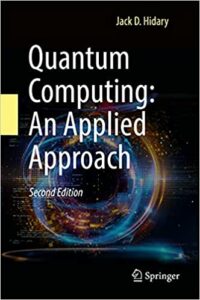
Released Dec. 2021 – Amazon link (Book review/interview forthcoming in Quantum Daily)
So we make it hands-on and contextual. We do Python programming, where we basically teach the concept in linear algebra, then show how it’s relevant to machine learning,
We use Google Collab through Jupyter notebooks, in the hosted Google version, and so we have hosted Collabs/notebooks that allow the individual to interact with that concept.
(Todd note: If you are not familiar, Jupyter notebooks are an excellent innovation where instead of having to set up coding environments on your computer, you can immediately engage through a web browser. Google Collab is an easy to access version, and there are resources for learning Python, which is commonly used in data science, machine learning and quantum.)
Todd: I’m not a math professor, but I would say from what I’m seeing is an emerging fusion of Python and linear algebra. It feels like if you actually tested this contextual, hands-on approach to learning these skills (vs the traditional approach to math – or coding), that it would show a demonstrable increase in learning just because of the context, vs abstract rote learning.
Appendix: Job Titles
A quick copy/paste circa 3.24.22, most positions are remote, a few are either in person or remote, see site for latest list/details. Please share with friends and/or on LinkedIn, Twitter, etc.
https://www.sandboxaq.com/careers
If you found this article to be informative, you can explore more current quantum news here, exclusives, interviews, and podcasts.
(Administrative)
Human Resources Generalist
(Business)
BusinessOps – Controller
Business Ops & Strategy Associate
Federal Business Development Manager
Federal Contracting Lead
Federal Program Manager
Federal Sales Engineer (Technical Federal Lead)
M&A Corporate Development Lead
Program/ Project Business Operations manager
Sales Engineer – Business Development for Quantum Security
Supplier Technical Program Manager
Data Science
Director of Data Science, Biosignals
Location: CA
Education
Head of External Education Programs
(Engineering)
Cryptography Software Engineer
DevOps Engineer
Engineering Manager
Full Stack Software Engineer
Junior PNT Engineer
Machine Learning Software Engineer
Networking Software Engineer
QN – Senior ML Engineer
Quantum Scientist – Quantum Engineer
Research Scientist – PETs
Research Scientist – PQC
Security Engineer
Senior Integration Engineer
Location: Bay Area, California
Software Engineer – Simulation and Optimization
Technical Lead
Technical Program Manager
Technical Security Consultant
Research Scientist
QN- Applied AI/ML Researcher
Senior PNT Researcher
(Note: there is also a PhD residency program)
